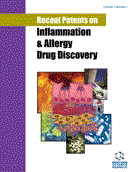Abstract
Febuxostat is a novel non-purine selective inhibitor of xanthine oxidase being developed for the management of hyperuricaemia in patients with gout. To critically review the clinical trial data, safety profile, pharmacology, and role of febuxostat for the treatment of hyperuricemia and gout. A review of the literatures on febuxostat was performed. All available human studies describing the pharmacology of febuxostat were included; including pharmacodynamics, efficacy, and safety of febuxostat. Available studies, patents and abstracts were identified through PubMed (1990-December 2006), Delphion, Cochrane Databases, and the American College of Rheumatology and European League Against Rheumatism Web sites. Key search terms were febuxostat, TMX- 67, and TEI-6720. Febuxostat has been used at a dose of 80 to 120 mg for the management of hyperuricemia in gout. The drug is mainly metabolized by the liver and therefore mild-moderate renal impairment does not appear to impede its effect. However, given the limited long-term liver function safety data, failure of a large percentage of patients taking febuxostat to achieve the primary end point of serum urate levels less than 6.0 mg/dL, and higher drop out rate in the Febuxostat group in the clinical trials, the exact role of febuxostat as a urate-lowering therapy remains uncertain. Febuxostat is a promising alternative to allopurinol for the treatment of gout and hyperuricemia. The optimal length of colchicines prophylactic therapy for chronic gout, clinical significance of abnormal liver function tests results during therapy, and safety in patients with moderate or severe hepatic and renal insufficiency warrant further investigation. A post-market surveillance is also needed to address the safety issue of long-term febuxostat treatment.
Keywords: Febuxostat, gout, hyperuricemia, uric acid, allopurinol, treatment
 48
48














